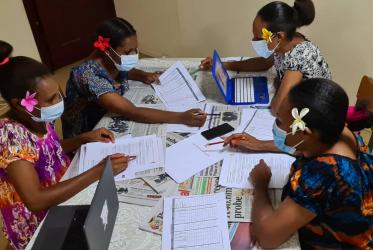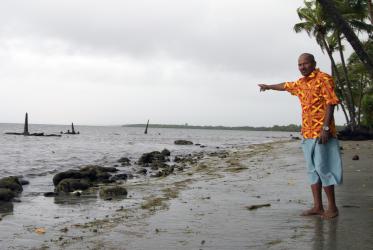Displaying 1 - 15 of 15
New student body at Bossey Ecumenical Institute “a source of joy”
14 September 2020
An advocate for family values, called by God
26 March 2018
New videos help congregations hasten HIV response
20 October 2016
Voices from HIV workshop reflect deep impact
07 April 2016
Condolences on the death of Tuikilakila Waqairatu
11 February 2014









